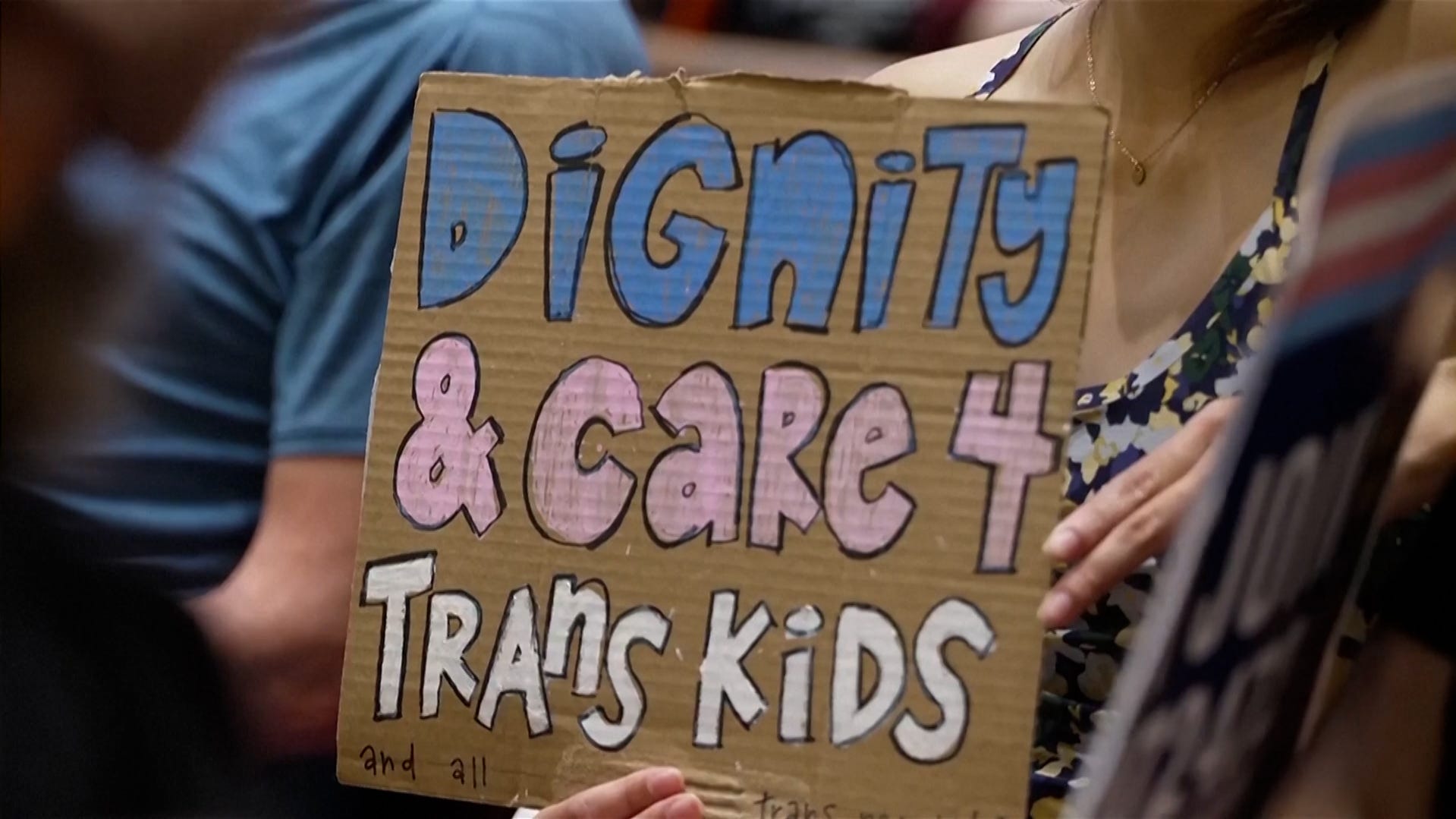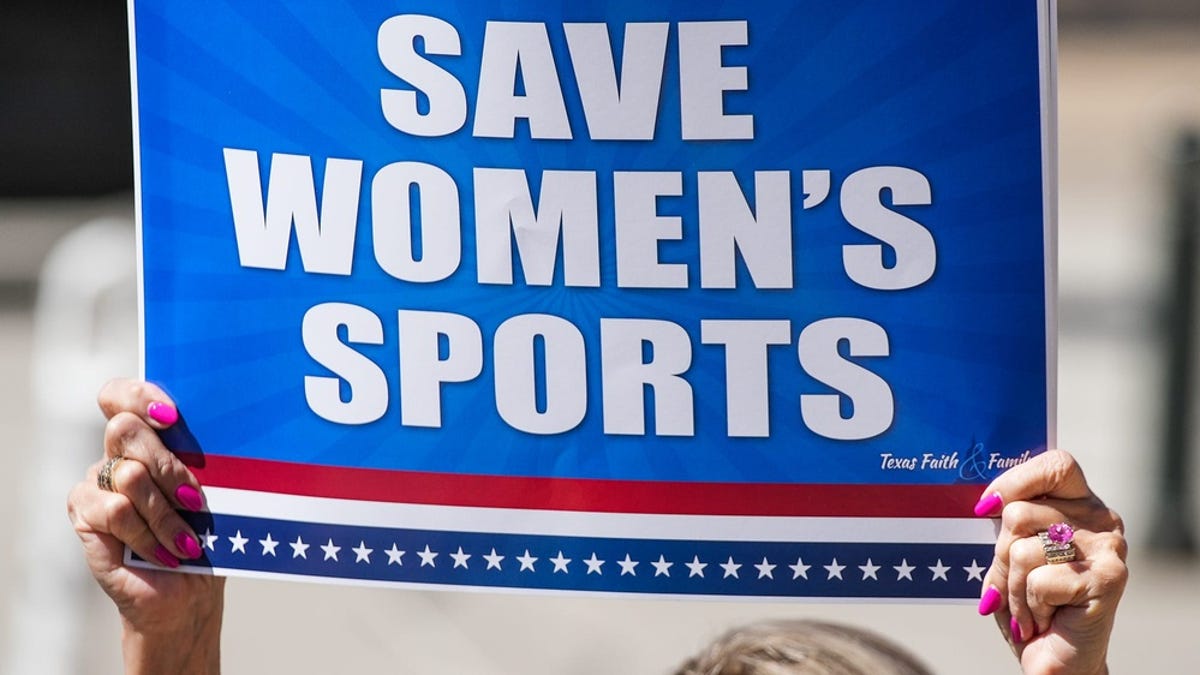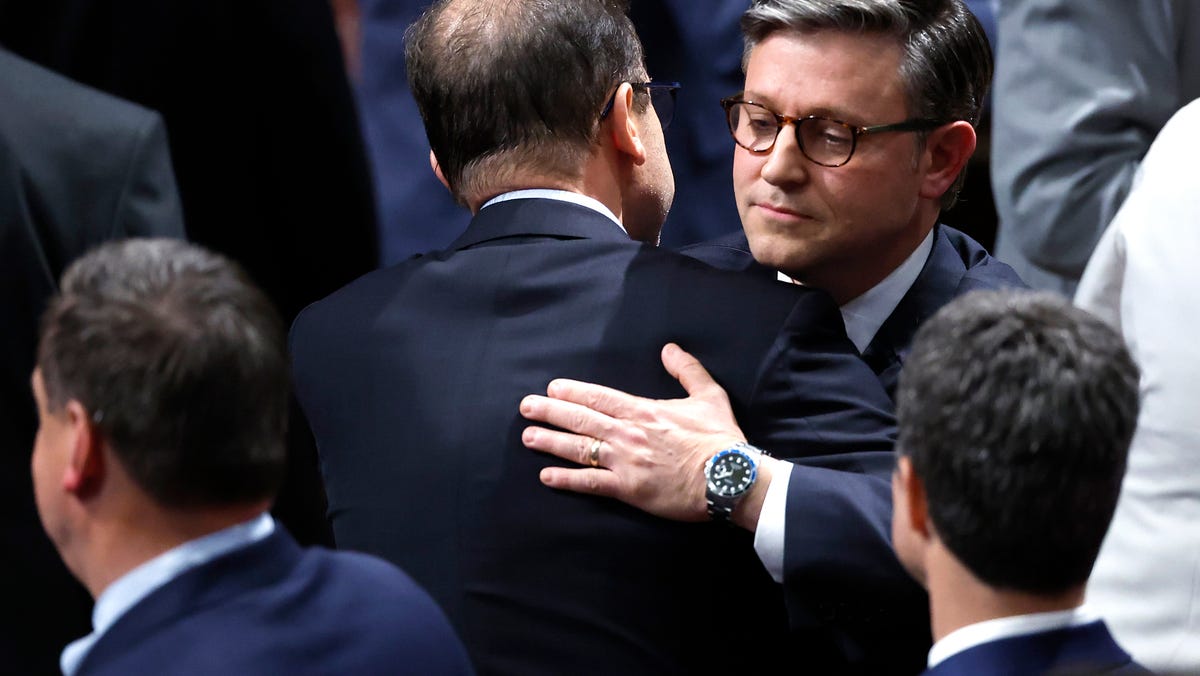
Activists react to SCOTUS ruling gender-affirming care ban for minors
Transgender activists are reacting to a new SCOTUS ruling upholding Tennessee’s ban on gender-affirming care for minors.
WASHINGTON−The Supreme Court is diving back into the culture war issue of transgender rights, adding a potentially blockbuster case on transgender athletes to its next term.
The court’s July 3 announcement that it will review Idaho’s and West Virginia’s bans on transgender athletes joining female sports teams came just weeks after the court’s conservative majority upheld Tennessee’s ban on puberty blockers and hormone therapy for minors.
The justices are likely to hear arguments in the fall and hand down a decision next year.
More than half the states have passed laws preventing transgender athletes from competing on female school sports teams, saying they are trying to prevent competitive advantages. The laws don’t take into account someone’s athletic ability or how far they are in transitioning to another gender.
President Donald Trump, who campaigned on the issue, has moved to cut off federal funding from schools that allow transgender athletes to compete against other athletes who match their gender identity.
The University of Pennsylvania this week said it will prohibit transgender athletes from competing in women’s sports and stripped the record of former swimmer Lia Thomas as part of an agreement with the U.S. Department of Education.
Penn entered the resolution agreement July 1 to comply with Title IX, the department announced, as the university had been under investigation surrounding the case of Thomas, who became the first openly transgender athlete to win a NCAA Division I title.
Two-thirds of adults surveyed in February by Pew Research Center favor requiring trans athletes to compete on teams that match their sex assigned at birth.
Support was even higher than the 56% who don’t want gender transition care for minors.
The court’s 6-3 decision upholding Tennessee’s prohibition on such care left unanswered how its ruling might apply to bans on transgender participation in school sports, bans on transgender care for adults, and other issues.
The ideologically divided court said the ban does not discriminate against transgender people because the restrictions turn on age and the purpose of the medical treatment, not whether the person is transgender.
On the athletic bans, state officials said the justices need to address a “growing trend of males identifying as females competing against – and beating – females in women’s sports across the country.”
“It’s time to return girls’ sports to the girls and stop this misguided gender ideology once and for all,” West Virginia Attorney General JB McCuskey said in a statement.
Lower courts blocked Idaho and West Virginia from enforcing their bans against a Boise State University student and a middle-school student in West Virginia.
Attorneys for the Idaho and West Virginia students described their clients as no threat to other members of female sports teams.
The West Virginia student, for example, had never experienced the effects of testosterone and consistently placed in the back of the pack in cross country competitions.
Despite never winning a competition during three seasons, her attorneys said, she still considered those years the best of her life.
“Everyone understands the value of participating in team athletics, for fitness, leadership, socialization, and myriad other benefits,” said Sasha Buchert, an attorney with Lambda Legal.
The Virginia-based 4th U.S. Circuit Court of Appeals said West Virginia couldn’t enforce its ban against Becky Pepper-Jackson, who takes puberty blocking medication and has publicly identified as a girl since third grade.
In 2023, the Supreme Court denied the state’s request to keep the ban against Pepper-Jackson in place while the underlying litigation continued. Justices Samuel Alito and Clarence Thomas dissented from that decision.
Idaho’s ban, the first in the nation when passed in 2020, was challenged by Lindsay Hecox, a transgender woman who attended Boise State University.
The San Francisco-based 9th U.S. Circuit Court of Appeals said the ban likely discriminates against transgender female athletes. The court also said Idaho hadn’t shown how the ban would further the stated goal of greater opportunity for women athletes.
Hecox played soccer and ran on school club teams. She tried out for the National College Athletic Association cross-country and track teams but wasn’t fast enough to make the cut, according to her attorneys.








